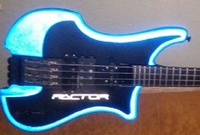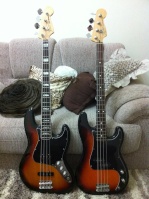Curiosidade de como você usa o master de seu amplificador
+34
Lucas94
Stormbringer
renatogaragerock
Dom Mauro
LuCaSbass
rmarigo
Fernando Zadá
SILVIAO
afonsodecampos
CaQuinhO
Abidu
arthur.farias.96
GeleiaBass
Breno_Barnabe
Tonante
Aionius
Eliseumohr
Tucone
Claudio
Sidnei D Ferreira
DenisLM
rodsom
fabio887
joabi
Paulo Penna
fschmidt
Alex BHT
gpraxedes
gsfteodoro
tcraposo
B3ck1m2n
allexcosta
Sonikado
ct.colela
38 participantes
Página 4 de 4
Página 4 de 4 •  1, 2, 3, 4
1, 2, 3, 4
 Re: Curiosidade de como você usa o master de seu amplificador
Re: Curiosidade de como você usa o master de seu amplificador
Allex o modelo do falante eu não me recordo porque tem um codigo grande
quando chegar em casa eu posto o modelo(esta a venda) kkkkkkkk
quando chegar em casa eu posto o modelo(esta a venda) kkkkkkkk

ct.colela- FCBR-CT

- Mensagens : 3394
Localização : Orlândia
 Re: Curiosidade de como você usa o master de seu amplificador
Re: Curiosidade de como você usa o master de seu amplificador
Essa discussão leva em conta os atuais cubos importados do mercado
100% dos cubos importados estão vindo com um limiter interno para evitar isso
Quando a potencia chega no limite entre a onda limpa e onda disforme o amplificador comprime limitando o sinal de saida do power
por isso sofro de abominação pela linha de cubos nova da ampeg os hartke o parta a mesma coisa
todos tem um compressor maldito que matam o som do ampli
um bs da staner não tem compressor e fala forte
tem uma voz ruim perto dos importados,mas segura uma gig com batera
100% dos cubos importados estão vindo com um limiter interno para evitar isso
Quando a potencia chega no limite entre a onda limpa e onda disforme o amplificador comprime limitando o sinal de saida do power
por isso sofro de abominação pela linha de cubos nova da ampeg os hartke o parta a mesma coisa
todos tem um compressor maldito que matam o som do ampli
um bs da staner não tem compressor e fala forte
tem uma voz ruim perto dos importados,mas segura uma gig com batera

ct.colela- FCBR-CT

- Mensagens : 3394
Localização : Orlândia
 Re: Curiosidade de como você usa o master de seu amplificador
Re: Curiosidade de como você usa o master de seu amplificador
Leia mais, se quiser:
http://www.reddit.com/r/WeAreTheMusicMakers/comments/1ppywn/could_we_dispel_the_myth_that_clipping_andor/
E mais:
Amplifier clipping, and it's respective causes and effects, is perhaps one of the most misunderstood concepts amongst audio circles. There is a whirlwind of myths surrounding this topic that seems to exceed all other topics I have come across. Now is your chance to learn the truth about clipping.
How Do Speakers Become Damaged
There are only two ways that a speaker can be damaged, both of which occur from too much input power. 1. Mechanically 2. Thermally
Every speaker has an excursion limit (often measured in mm), or how far the speaker can move forward or rearward before damage occurs. This is the mechanical limit of the speaker. This limit remains the same regardless of the use of the speaker, but the power required to reach this limit changes dependent on the enclosure. If you exceed this limit, the speaker will suffer mechanical damage, whether it's ripping your spider, bottoming out on the back plate, or any other mechanical damage. The second type, thermal damage, occurs when you exceed the thermal power handling limits of the voice coil itself. Voice coils are simple pieces of metal that will melt if too much power is applied. This limit is pretty much constant, ie. if a voice coil will be damaged at 1 kw, it will be damaged at 1kw regardless. There are two final myths to cover here. Despite the tireless efforts of some, there are still many people that believe that underpowering a speaker will damage it or that clipping will damage a speaker. Please remember that these last two thoughts are entirely UNTRUE! And now we will find out why.
Where Does This Power Come From?
Let's first understand the power potential of an amplifier when clipping. The power created is largely determined by the rail voltages. Let's compare two amps, each one connected to a 4 ohm speaker rated at 75 watts rms. Amp 1: 50 watt amp 50 Watt amp means this amp can cleanly deliver a sinewave of 50watts into a 4 ohm load. This means (Vrms)^2/4 = 50W Vrms = 14.14V Vpeak = Vrms*(1.414) Vpeak = 19.99V The rail voltages of this amp must be a bit higher, to prevent output stage distortion at this power level. In this case, the Rail voltage would have to be +/- 20 Volts. Amp 2: 75 watt amp (Vrms)^2/4 = 75W Vrms = 17.32V Vpeak = Vrms*(1.414) Vpeak = 24.49V In the example, the 75 watt amp is delivering 75 watts as it is not distorting at all. The 50 watt amp is in hard clipping, as and such, is delivering a fair bit more power. P = Vrms^2/R = (19.99V)^2/4 ohm = 100 watts. It is quite obvious that there is potential for an amplifier that is clipping to deliver substantially more power than you would expect. Keep in mind that this is only a way to determine peak voltage potential.
Average Power
Now we can get into how a speaker really gets hurt. The key issue is average power over time. Let's get to the nitty gritty. The first key is understanding Crest Factor.
"Crest Factor" is the difference between the average level of the signal and its peak level. A pure sine wave has a "crest factor" of 3dB, meaning that it's peak level is 3dB higher than its average level. We all know that 3dB represents a difference in power by a factor of 2. Another way to look at it is that the peak power of the signal is twice that of its average level. If we were to play a sine wave on our 50 watt amplifier, just below its clipping level, the average power over time the speaker would need to dissipate is 25 watts. On the other hand, a square wave has a crest factor of 0dB. In other words, its average power and peak power levels are equal. Our same 50 watt amplifier playing a square wave into our speaker requires the speaker to dissipate 50 watts. Keep in mind that this refers to sine and square waves only. Music has a much higher crest factor. Most widely available recordings have a crest factor of approximately 10dB. Looking at this in terms of power, the peak power is 10 times greater than the average power. If we were to play one of these recordings with our 50 watt amplifier when not clipping, the speaker needs to dissipate a mere 5 watts of average power over time. When the amplifier begins clipping, the peak level/power does not increase. BUT, the average power DOES increase. If we were to turn the volume up 6dB higher than the clipping level of our recording, we have reduced our crest factor to 4dB. Guess what? We are now needing the speaker to dissipate 20watts. This is four times the average power and four times the heat when measured over time. As you can see here, it is not the distortion or the waveform or anything along those lines that is killing your speaker; there is simply more average power over time. However, if the average power of time is still below what your speaker can handle, it doesn't matter if it's clipping or not. At higher power levels, the fact that a clipped signal carries more average power over time can result in damage.
DC in Clipping
One of the most famous myths regarding clipping is that it produces DC. The assumption is made because of the flat tops and bottoms to a square wave. It's incorrect to think of a squarewave as made up of positive and negative dc components. The only way for a it to be DC would be if there was a non-zero average value over long periods of time. If the polarity changes at all within the time frame that you are looking at, it is simply not DC. What are these flat portions of the signal? It is simply a combination of the fundamental frequency and all of it's higher order harmonics in sine wave form. For example, if you were to play a 20hz tone while clipping, there would be the fundamental frequency (ie. 20hz) and the second (40hz), third (80hz), and 4th (160hz) order harmonics. The sum of these frequencies creates what appears as a squarewave. There are two ways to test this for yourself; one is quite easy, the other is a little more advanced. The first way is simple if you have a variable crossover and an oscilloscope handy. Pass a low frequency square wave. You will notice the square shape on the oscilloscope. Now turn your crossover's low pass filter on. Slowly lower the setting as you approach the fundamental frequency. You will notice the waveform on your oscilloscope slowly rounding off into a typical sinewave. Once you have reached the fundamental frequency, your oscilloscope will show a perfect sinewave. The second way is for your math guys (or for those who like to use Matlab). If you look in the frequency domain using a Fast Fourier Transform, you will see the fundamental frequency and its higher order harmonics only. There will be absolutely no DC present.
Clipping and the still voice coil
The final myth is that of the still voice coil. It is perhaps the most believed myth regarding clipping. The idea is that because of the square wave, the coil is not moving during the flat portions of the signal. This is simply not true for a variety of reasons. The speaker does exhibit mechanical damping and remains in constant motion. Assuming the same voltage and excursion xmax, the cooling at any given frequency will remain the same, whether the signal is clipped or unclipped. Here is a great article to read on the cooling effects and how a driver fails under various waveforms: http://forum.carstereos.org/f-car-audio ... ults-47441
Summary
To provide a final review of all that we have discussed on this topic, there are only two ways to damage a speaker: Mechanically and Thermally. The only way to do this is by applying too much input power in a given enclosure (mechanically) or too much average power over time (thermally). There is no DC in a clipped signal; the coil does not stand still; air passing over the coil (and thus cooling) is the same regardless of the waveform; and clipping is acceptable provided that the average power over time is lower than the speaker's limits. The next time you hear those famed words "your speakers died because of clipping", remember what you have learned, and above all, keep searching for the truth. It's out there somewhere.
(Bill Fitzmaurice - Loudspeaker designer)
http://www.reddit.com/r/WeAreTheMusicMakers/comments/1ppywn/could_we_dispel_the_myth_that_clipping_andor/
E mais:
Amplifier clipping, and it's respective causes and effects, is perhaps one of the most misunderstood concepts amongst audio circles. There is a whirlwind of myths surrounding this topic that seems to exceed all other topics I have come across. Now is your chance to learn the truth about clipping.
How Do Speakers Become Damaged
There are only two ways that a speaker can be damaged, both of which occur from too much input power. 1. Mechanically 2. Thermally
Every speaker has an excursion limit (often measured in mm), or how far the speaker can move forward or rearward before damage occurs. This is the mechanical limit of the speaker. This limit remains the same regardless of the use of the speaker, but the power required to reach this limit changes dependent on the enclosure. If you exceed this limit, the speaker will suffer mechanical damage, whether it's ripping your spider, bottoming out on the back plate, or any other mechanical damage. The second type, thermal damage, occurs when you exceed the thermal power handling limits of the voice coil itself. Voice coils are simple pieces of metal that will melt if too much power is applied. This limit is pretty much constant, ie. if a voice coil will be damaged at 1 kw, it will be damaged at 1kw regardless. There are two final myths to cover here. Despite the tireless efforts of some, there are still many people that believe that underpowering a speaker will damage it or that clipping will damage a speaker. Please remember that these last two thoughts are entirely UNTRUE! And now we will find out why.
Where Does This Power Come From?
Let's first understand the power potential of an amplifier when clipping. The power created is largely determined by the rail voltages. Let's compare two amps, each one connected to a 4 ohm speaker rated at 75 watts rms. Amp 1: 50 watt amp 50 Watt amp means this amp can cleanly deliver a sinewave of 50watts into a 4 ohm load. This means (Vrms)^2/4 = 50W Vrms = 14.14V Vpeak = Vrms*(1.414) Vpeak = 19.99V The rail voltages of this amp must be a bit higher, to prevent output stage distortion at this power level. In this case, the Rail voltage would have to be +/- 20 Volts. Amp 2: 75 watt amp (Vrms)^2/4 = 75W Vrms = 17.32V Vpeak = Vrms*(1.414) Vpeak = 24.49V In the example, the 75 watt amp is delivering 75 watts as it is not distorting at all. The 50 watt amp is in hard clipping, as and such, is delivering a fair bit more power. P = Vrms^2/R = (19.99V)^2/4 ohm = 100 watts. It is quite obvious that there is potential for an amplifier that is clipping to deliver substantially more power than you would expect. Keep in mind that this is only a way to determine peak voltage potential.
Average Power
Now we can get into how a speaker really gets hurt. The key issue is average power over time. Let's get to the nitty gritty. The first key is understanding Crest Factor.
"Crest Factor" is the difference between the average level of the signal and its peak level. A pure sine wave has a "crest factor" of 3dB, meaning that it's peak level is 3dB higher than its average level. We all know that 3dB represents a difference in power by a factor of 2. Another way to look at it is that the peak power of the signal is twice that of its average level. If we were to play a sine wave on our 50 watt amplifier, just below its clipping level, the average power over time the speaker would need to dissipate is 25 watts. On the other hand, a square wave has a crest factor of 0dB. In other words, its average power and peak power levels are equal. Our same 50 watt amplifier playing a square wave into our speaker requires the speaker to dissipate 50 watts. Keep in mind that this refers to sine and square waves only. Music has a much higher crest factor. Most widely available recordings have a crest factor of approximately 10dB. Looking at this in terms of power, the peak power is 10 times greater than the average power. If we were to play one of these recordings with our 50 watt amplifier when not clipping, the speaker needs to dissipate a mere 5 watts of average power over time. When the amplifier begins clipping, the peak level/power does not increase. BUT, the average power DOES increase. If we were to turn the volume up 6dB higher than the clipping level of our recording, we have reduced our crest factor to 4dB. Guess what? We are now needing the speaker to dissipate 20watts. This is four times the average power and four times the heat when measured over time. As you can see here, it is not the distortion or the waveform or anything along those lines that is killing your speaker; there is simply more average power over time. However, if the average power of time is still below what your speaker can handle, it doesn't matter if it's clipping or not. At higher power levels, the fact that a clipped signal carries more average power over time can result in damage.
DC in Clipping
One of the most famous myths regarding clipping is that it produces DC. The assumption is made because of the flat tops and bottoms to a square wave. It's incorrect to think of a squarewave as made up of positive and negative dc components. The only way for a it to be DC would be if there was a non-zero average value over long periods of time. If the polarity changes at all within the time frame that you are looking at, it is simply not DC. What are these flat portions of the signal? It is simply a combination of the fundamental frequency and all of it's higher order harmonics in sine wave form. For example, if you were to play a 20hz tone while clipping, there would be the fundamental frequency (ie. 20hz) and the second (40hz), third (80hz), and 4th (160hz) order harmonics. The sum of these frequencies creates what appears as a squarewave. There are two ways to test this for yourself; one is quite easy, the other is a little more advanced. The first way is simple if you have a variable crossover and an oscilloscope handy. Pass a low frequency square wave. You will notice the square shape on the oscilloscope. Now turn your crossover's low pass filter on. Slowly lower the setting as you approach the fundamental frequency. You will notice the waveform on your oscilloscope slowly rounding off into a typical sinewave. Once you have reached the fundamental frequency, your oscilloscope will show a perfect sinewave. The second way is for your math guys (or for those who like to use Matlab). If you look in the frequency domain using a Fast Fourier Transform, you will see the fundamental frequency and its higher order harmonics only. There will be absolutely no DC present.
Clipping and the still voice coil
The final myth is that of the still voice coil. It is perhaps the most believed myth regarding clipping. The idea is that because of the square wave, the coil is not moving during the flat portions of the signal. This is simply not true for a variety of reasons. The speaker does exhibit mechanical damping and remains in constant motion. Assuming the same voltage and excursion xmax, the cooling at any given frequency will remain the same, whether the signal is clipped or unclipped. Here is a great article to read on the cooling effects and how a driver fails under various waveforms: http://forum.carstereos.org/f-car-audio ... ults-47441
Summary
To provide a final review of all that we have discussed on this topic, there are only two ways to damage a speaker: Mechanically and Thermally. The only way to do this is by applying too much input power in a given enclosure (mechanically) or too much average power over time (thermally). There is no DC in a clipped signal; the coil does not stand still; air passing over the coil (and thus cooling) is the same regardless of the waveform; and clipping is acceptable provided that the average power over time is lower than the speaker's limits. The next time you hear those famed words "your speakers died because of clipping", remember what you have learned, and above all, keep searching for the truth. It's out there somewhere.
(Bill Fitzmaurice - Loudspeaker designer)

allexcosta- Administrador
- Mensagens : 54432
Localização : Terra
 Re: Curiosidade de como você usa o master de seu amplificador
Re: Curiosidade de como você usa o master de seu amplificador
Eu me rendo kkkkkkkkkkkk



ct.colela- FCBR-CT

- Mensagens : 3394
Localização : Orlândia
 Re: Curiosidade de como você usa o master de seu amplificador
Re: Curiosidade de como você usa o master de seu amplificador
Estou lendo o link do Nando e fiquei com as seguintes dúvidas:
"A aplicação de potência RMS igual ou inferior aos transdutores é extremamente perigosa , pois quando os amps são submetidos ao máximo de sua capacidade geram um alto nível de distorção harmônica, clipando, produzindo energia em forma de onda quadrada e consequente dano aos transdutores.
Mais isso não seria com qualquer tipo de falante, tanto um de 100W quanto um de 500W em relação a uma potência de 250W ? Seria tipo, o falante de 500W precisa de mais força para falar bem e por isso corre o risco do usuário tentar chegar na potência ? sendo que o de 100W já estaria falando bem com uma potência menor ?
"Todo sistema de som trabalha com um sinal musical de natureza dinâmica e com variações muito rápidas que podem facilmente saturar a saída dos amps (clipping), ocorrendo assim o recorte do sinal entregue aos falantes. Esse sinal de natureza senoidal passa a ter uma forma de onda quadrada com comportamento similar à corrente contínua.
Para se evitar isso recomenda-se trabalhar sempre com uma reserva de potência para que os transientes muito rápidos e de curta duração não saturem o amp.
Juro que tentei entender isso, sem sucesso, os transientes rápidos não saturariam os falantes ? assim exigindo maior capacidade dos mesmos ?
"A aplicação de potência RMS igual ou inferior aos transdutores é extremamente perigosa , pois quando os amps são submetidos ao máximo de sua capacidade geram um alto nível de distorção harmônica, clipando, produzindo energia em forma de onda quadrada e consequente dano aos transdutores.
Mais isso não seria com qualquer tipo de falante, tanto um de 100W quanto um de 500W em relação a uma potência de 250W ? Seria tipo, o falante de 500W precisa de mais força para falar bem e por isso corre o risco do usuário tentar chegar na potência ? sendo que o de 100W já estaria falando bem com uma potência menor ?
"Todo sistema de som trabalha com um sinal musical de natureza dinâmica e com variações muito rápidas que podem facilmente saturar a saída dos amps (clipping), ocorrendo assim o recorte do sinal entregue aos falantes. Esse sinal de natureza senoidal passa a ter uma forma de onda quadrada com comportamento similar à corrente contínua.
Para se evitar isso recomenda-se trabalhar sempre com uma reserva de potência para que os transientes muito rápidos e de curta duração não saturem o amp.
Juro que tentei entender isso, sem sucesso, os transientes rápidos não saturariam os falantes ? assim exigindo maior capacidade dos mesmos ?
Última edição por rmarigo em Seg Ago 11, 2014 3:09 pm, editado 1 vez(es)

rmarigo- Membro
- Mensagens : 462
Localização : Santo André
 Re: Curiosidade de como você usa o master de seu amplificador
Re: Curiosidade de como você usa o master de seu amplificador
Colela, a discussão é boa e eu já conheci um monte de gente com anos de experiência em áudio que acreditava nisso, até gente que faz som pra Trio Elétrico de artista conhecido nacionalmente.
É polêmico mesmo, mas você leu o texto?
É polêmico mesmo, mas você leu o texto?

allexcosta- Administrador
- Mensagens : 54432
Localização : Terra
 Re: Curiosidade de como você usa o master de seu amplificador
Re: Curiosidade de como você usa o master de seu amplificador
ct.colela escreveu:Allex o modelo do falante eu não me recordo porque tem um codigo grande
quando chegar em casa eu posto o modelo(esta a venda) kkkkkkkk
O único 18sound de 15" com rating de 1000W é esse aqui:
http://www.usspeaker.com/eighteensound-15LW1401-1.htm
Note que ele tem um Xmax de 9mm.
Dá até tristeza ouvir falar que um falante dessa natureza e preço sofreu dano relativamente fácil. Fico curioso por saber que tipo de abuso ele pode ter sofrido e qual o sub ativo no qual ele estava instalado.

allexcosta- Administrador
- Mensagens : 54432
Localização : Terra
 Re: Curiosidade de como você usa o master de seu amplificador
Re: Curiosidade de como você usa o master de seu amplificador
^quando chegar em casa passo o modelo exato do falante tiro ate foto mostrando onde foi o problema,para mostrar que teve o rompimento da limalha
o sub é fabricação alemã ,eu não conheço
o sub é fabricação alemã ,eu não conheço

ct.colela- FCBR-CT

- Mensagens : 3394
Localização : Orlândia
 Re: Curiosidade de como você usa o master de seu amplificador
Re: Curiosidade de como você usa o master de seu amplificador
ct.colela escreveu:Eu me rendo kkkkkkkkkkkk


Alex BHT- Membro
- Mensagens : 790
Localização : Brasília
 Re: Curiosidade de como você usa o master de seu amplificador
Re: Curiosidade de como você usa o master de seu amplificador
Essa Gif ficou muito boa mesmo...
kkkkkkkkkkkkkkkkkkkkkk
kkkkkkkkkkkkkkkkkkkkkk
gsfteodoro- Membro
- Mensagens : 5417
Localização : Brezil
 Re: Curiosidade de como você usa o master de seu amplificador
Re: Curiosidade de como você usa o master de seu amplificador
A solução para este assunto técnico de desdobramentos incalculavéis:



SILVIAO- Membro
- Mensagens : 3487
Localização : Limeira
 Re: Curiosidade de como você usa o master de seu amplificador
Re: Curiosidade de como você usa o master de seu amplificador
Acabei de fazer o teste do costela no SWR 350X, e não é que o negócio ficou bão?
Timbre muuuito melhor que o Gain em 60% e Master em 10% !
Havia desistido de usar amps com mais de 100W em casa pq o timbre sempre era uma bosta. Agora já dá pra brincar rss
Timbre muuuito melhor que o Gain em 60% e Master em 10% !
Havia desistido de usar amps com mais de 100W em casa pq o timbre sempre era uma bosta. Agora já dá pra brincar rss

Jackson- Membro
- Mensagens : 1846
Localização : Rio de Janeiro
Página 4 de 4 •  1, 2, 3, 4
1, 2, 3, 4
 Tópicos semelhantes
Tópicos semelhantes» Amplificador Master BX200
» Curiosidade: Que cor de contrabaixo (elétrico) você mais gosta?
» Conte sua HIstória como Baixista (como você conheceu esse instrumento)
» Curiosidade quanto a um set com amplificador não de contrabaixo
» Amplificador Master Bx 1.08
» Curiosidade: Que cor de contrabaixo (elétrico) você mais gosta?
» Conte sua HIstória como Baixista (como você conheceu esse instrumento)
» Curiosidade quanto a um set com amplificador não de contrabaixo
» Amplificador Master Bx 1.08
Página 4 de 4
Permissões neste sub-fórum
Não podes responder a tópicos|
|
|

